Interview: Peanut Butter Wolf
Founder of LA’s iconic Stones Throw records discusses creativity, artistic freedom and working with music legends

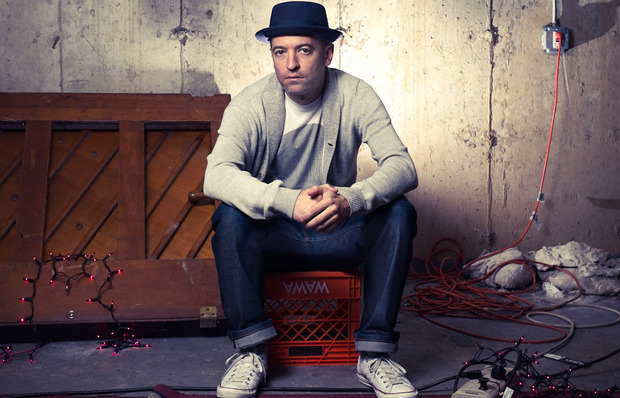
In 1996, Chris Manak—aka Peanut Butter Wolf—self-released “My Wold Premier,” a collaborative effort between him and his partner and close friend Charizma, who died three years previous in a carjacking. The release was deeply personal and marked the first record to be released under the Stones Throw moniker. Fast-forward 18 years and the independent, LA-based label is counted among the most influential forces in modern music—and remains deeply personal to its founder and director. Releases are based on Wolf’s preferences in place of sales projections. Inspiring a cult following around the world from South Central to Japan to mainland Europe to Middle America and everywhere in between, the story of Stones Throw is one as much about creative freedom and entrepreneurship as it is simply about music. The bold personalities, the ideas, the relentless quest for individuality and the raw talent of the label that gave rise to such artists as J Dilla, Madlib, Madvillain and Dam-Funk is now told in the artfully produced documentary “Our Vinyl Weighs a Ton.” In anticipation of the documentary’s upcoming tour and widespread release, we caught up with the label’s founder and director Peanut Butter Wolf for a look inside the pioneer’s approach to the music industry.
You’ve been involved with music, from playing to producing to DJing, from a very young age. Was there ever any other option?
There was never anything else I wanted to do. Well, I wanted to be a vet when I was like four or five, but then I went fishing with my dad and got sad that there was a hook in the mouth of the fish and that its mouth was bleeding and realized I was “too sensitive” (read: wimpy) and decided against that one.
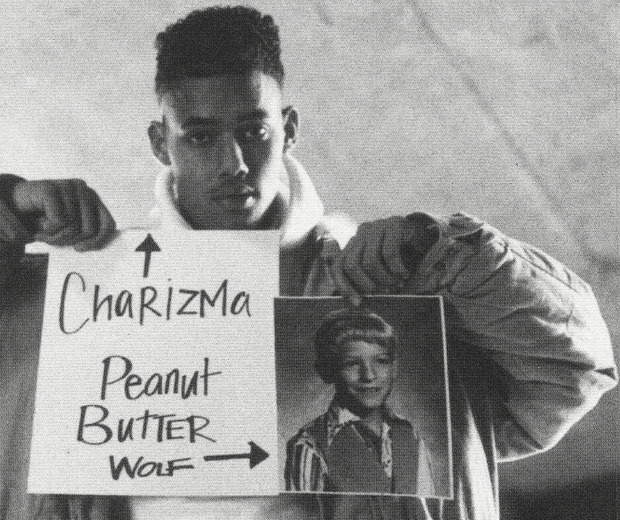
From the documentary, it seems like you and Charizma were inseparable in the early days. Can tell us about the role his absence played in the creative direction of the label?
Before I met him, I actually wanted to start my own label and I did, and released one vinyl 12″ single. That one flopped and I said to myself, “I’m gonna leave the label stuff to the label guys and focus on being a recording artist.” We were a group for around four years. Then when he died, I didn’t wanna be in a group again so I went back to “Plan A.”
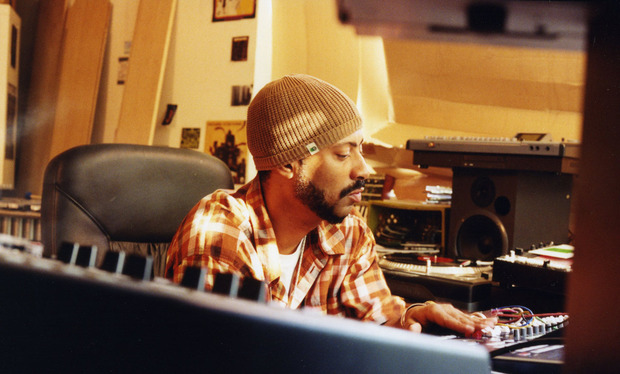
Ariel Pink mentions in the documentary that Stones Throw has created an almost entirely new genre of music.
I think Madlib helped a bunch of young aspiring artists realize that they didn’t have to be so cookie cutter and could still find fans. About 90% of Stones Throw’s current roster of artists are disciples of Madlib. I do have a lot of people solicit me demos and tell me, “I think you’re gonna love this. It’s right up your alley.” So from that standpoint, I think there is a certain “sound” that I’m into, but I haven’t ever been able to pinpoint exactly what that is.
You give artists an unprecedented amount of freedom—basically the opposite of major labels.
Well, I’m not gonna sit here and say that I like every single song from every single artist I sign. There’s debates that go on between the artists and myself probably as much as what happens at majors between artist and label head. I think the main difference is that I don’t generally try to find that hit from an artist. I’m more concerned with: Will this song stand the test of time? Will I like it in 20 years? Do I even like it now? That’s why it’s important to try to sign artists where we see eye-to-eye from the start. When Charizma and I signed with Hollywood Records, they signed us ’cause they saw potential. But they had a different vision for us than we did, and it led to frustration and conflict on both sides. That experience had a strong impact on me and how I run Stones Throw.
You don’t mold artists, you find them and let them be themselves. What do you look for?
Yeah, artists usually come into their own in time. It’s not something that I like to try to force. The more I get to know an artist, the more I understand them and can help point out little things I see.
Our Vinyl Weighs A Ton – Official Theatrical Trailer [HD] from Gatling Pictures on Vimeo.
You’ve taken an extremely creative approach, but turned it into a thriving business and have remained independent. How?
I think my model is the same as a lot of indies. They run their label as a fan first and foremost. Most of these “labor of love” labels are smaller than mine (one person operations), but even people at the majors are working in the music industry because they love music. A lot of them just happen to like different music than I do. And really, there’s singers and recording artists whose goals are a lot different than the guys I work with. But the main thing that Stones Throw has in common with the majors is that none of us can predict which artists the fans will like before it “actually happens.” I sometimes sign artists whom I have much higher expectations for than what happens for them and other times I have artists who outsell everyone’s “sales expectations.”
The label’s obviously not driven by money.
Everyone needs to make money. I just didn’t get into this to get rich. I got into it because music is my life. I was so excited in 1990 when I was able to hold up a vinyl record with my name on it—it felt better than anything else I can remember at the time. We pressed 500 units and probably sold 100 of them, but I had a record you could buy in a store that I produced. Felt so rewarding.
What continues to inspire you?
I’m inspired by my sister who is a cancer survivor and decided to create a safe skincare line for men and women called Authentic Skin Remedies. And her husband who quit a good job in Silicon Valley to go into business with her. And by my dad who has cancer and was given six months to live two and a half years ago and is still alive today.
Stone’s Throw is home to some legends like Madlib, Dilla, DOOM. What was it like to work with them?
I’m so thankful to work with those three. They’re the trifecta in the Stones Throw race. Madvillain and Jaylib came out at the same time and so we did a short tour with me, J Rocc, Madlib, Doom and Dilla. It all happened so fast, but looking back and seeing footage of them on stage together for that first and last time, it kinda feels like an underground version of when James Brown had that show in LA and brought MJ and Prince on stage at the same time. But even then, I knew enough to get them all to sign the tour itinerary.
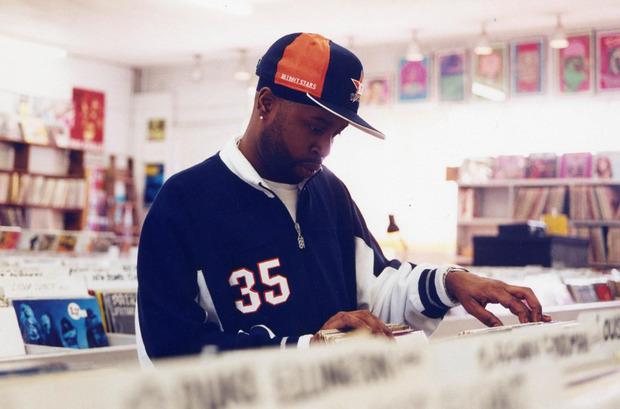
Each year, February 7th marks what would be J Dilla’s birthday and people around the world celebrate his legacy. What does his music mean to you personally?
It’s just good music. I don’t wanna get too over-analytical because I hear enough about Dilla from everyone else. He was just very open. He introduced experimental music to me like Bruce Haack that I never heard before. I mean, he sampled Throbbing Gristle like 10 years ago when hip-hop producers wouldn’t stray from jazz and soul to make beats. But the music sharing was a two-way street with him. I played him Gary Wilson and he turned Common onto it and they’d always ask me about Gary every time I saw them. And about a month before he passed away, I made him a CD with a bunch of stuff I was listening to at the time and he called me and left a voicemail saying, “Wolf, what is this? Wooooow,” and he put the speaker up to the phone. It was “See Line Woman” by Nina Simone and I was so happy he was feeling it like that. Just nerding out on music together. That’s what I remember most.
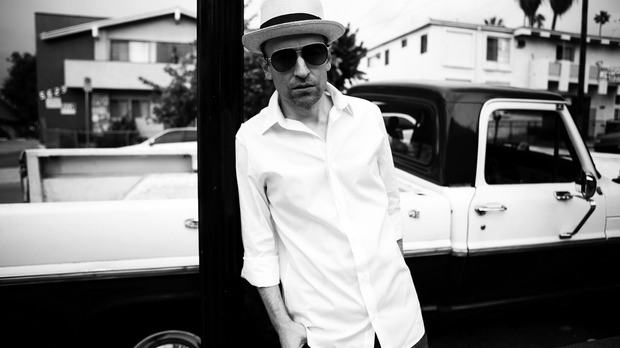
Regarding legacy, Madlib recently mentioned in an interview how he wants his material burned when he passes. What do you have in mind for your legacy? Or that of the label?
My legacy is convincing Madlib to let me put out his Quasimoto record when he didn’t intend for the public to hear it. And hearing prominent DJs criticize me at the time. And putting out Vex Ruffin and Chrome Canyon and not selling many units of either (yet) but having people whose opinions I respect ask about those artists. My legacy is seeing the “Stones Throw Fell Off” T-shirt that someone made because I’m not putting out the same stuff Stones Throw was known for in 2001. I want to give people what they want, but also wanna give them what they need. That’s my Chuck D lyric that I try to apply to my label and what I wanna be remembered for, good or bad.
Catch Peanut Butter Wolf and a selection of Stones Throw artists on tour in support of “Our Vinyl Weighs a Ton” across the US and Canada beginning 26 February in San Francisco. For more information visit Stones Throw online.
Images courtesy of Stones Throw and The Windish Agency












